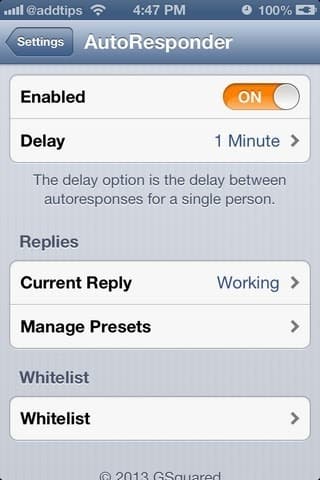Every week in even the smallest organizations, countless automated messages are being sent to your employees, your partners, your customers, your sales prospects, and your job candidates.
In most cases, marketing hasn’t designed them, legal hasn’t vetted them, and IT wants nothing to do with them.
I want to focus on this forgotten task, the ubiquitous but unacknowledged, the haphazardly thrown together moments before leaving for the beach, the accidentally left to operate for three weeks too long, and the totally off-brand and riddled with spelling mistakes.
Yes, it’s about out-of-office email auto-responders.
Is anyone responsible for this?
Controlling your organizational identity is crucial for ensuring a consistent marketing and recruiting brand. Indeed, most organizations have developed guidelines for employee email signatures, promotional materials, and job listings.
But all too often, the email auto-responder is left to its own devices, neglected in the netherworld between a company’s different functional departments. With no one clearly responsible, the messaging consistency you work so hard to achieve everywhere else is lost as quickly as your vacation-goers’ and conference-attendees’ in boxes fill up with messages.
After all, how do you enforce a policy that can only be monitored when employees are out of the office? Should HR care? What happens if you don’t?
Let’s consider both outcomes:
Outcome 1: Swim together to win together
The many goals and responsibilities that your employees support only come together to make a functional organization when everyone’s interests are aligned.
Ensuring this is a primary goal for both HR and senior company leadership. Consistent internal and external messaging is a crucial component of streamlined communications, and enforcement is often a task left up to HR.
Even if you’re not policing individual employees, HR should be providing resources and encouragement for managers to keep their employees aligned with the rest of the organization, even for “lower-priority” items like out-of-office messages.
In addition to showing a unified front to your external contacts, consistency in away notices will help your team to manage internal expectations around employee absences, making it easier for your hardest workers to take a much-needed break, and helping to reduce frustrations at both the top and the bottom of the company. A common calendar is a great start for this, but email auto-responders are icing on the cake.
Whoever controls the responders controls the message. Why not leverage your employees’ away notices to promote your open job positions, enhance your recruiting brand, and tap into a potentially massive network of job referrals?
Outcome 2: HR has bigger fish to fry
The argument for HR to enforce messaging consistency in out-of-office notifications is compelling. The question, however, is whether this should be a high-priority item or continue to be an afterthought. The new face of HR, after all, is strategic, social, engaging, and empowering — it’s not all about spreadsheets and enforcement anymore.
Besides, like HR’s role as the “nanny” of your business, in today’s 24/7 world, auto-responders are largely a relic of the past. Messages for employees who are away for only a few hours will be answered in short order, messages for employees who are away for a few days can wait until their return, and messages for employees who are away for extended periods should be forwarded to someone with the authority to act on them.
Even if you do create consistent auto-responders, how many of them will make it past their recipients’ filtering systems, and how many will actually get opened and read? It’s not worth the effort.
Provide guidelines and let employees regulate themselves
The best practice? Why not give your team the guidelines and tools they need to support your organization’s mission, but let them regulate their own activities? With a culture of engagement, colleagues will gently guide employees who are way off-course, while those who excel will be given kudos for their successes.
The occasional gentle prompt (“We’re starting a big round of hiring, so please promote our job listings in your out-of-office messages”) will fill out the initiative without seeming overbearing, and your employees will be left to do what they do best — their jobs.
